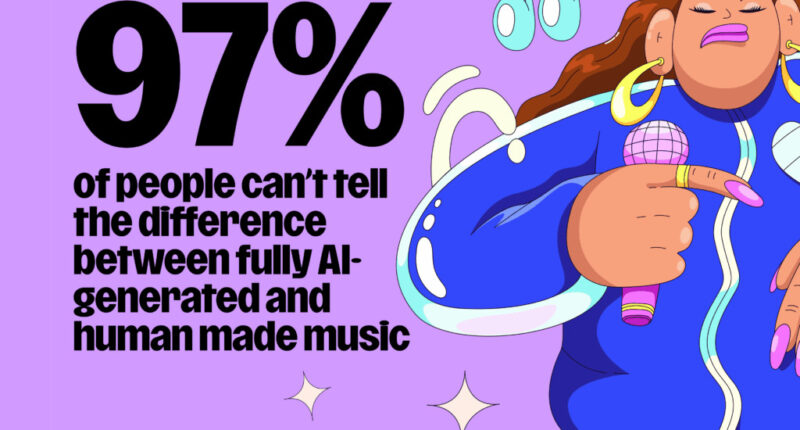Almost all listeners are unable to distinguish between human-composed music and artificial intelligence-generated tracks, despite a massive surge in synthetic content flooding streaming platforms.
A first-of-its-kind survey conducted by Ipsos and streaming service Deezer found that 97 per cent of participants failed to identify whether a track was AI-generated or human-made.
The findings come as Deezer revealed it now receives roughly 50,000 fully AI-generated tracks every day. This influx accounts for 34 per cent of all new content delivered to the platform daily.
The company identified a strong link between synthetic content and manipulation, noting that up to 70 per cent of streams generated by fully AI-generated tracks are fraudulent.
Despite their inability to spot the fakes, consumers expressed a strong desire for transparency. The survey of 9,000 adults across eight countries found that 80 per cent agree AI-generated music should be clearly labelled.
Minimising the negative impact
“Deezer has been leading the way in creating solutions for transparency and minimising the negative impact of fully AI-generated content flooding music streaming,” said Alexis Lanternier, CEO of Deezer.
“The survey results clearly show that people care about music and want to know if they’re listening to AI or human made tracks or not,” Lanternier added. “There’s also no doubt that there are concerns about how AI-generated music will affect the livelihood of artists, music creation and that AI companies shouldn’t be allowed to train their models on copyrighted material.”
Concerns regarding artist welfare were high, with 70 per cent of respondents believing AI music threatens the livelihood of musicians. Additionally, 69 per cent believe payouts for AI-generated music should be lower than for human-made music.
In response to the growing volume of synthetic media, Deezer has implemented detection technology to identify and tag 100 per cent AI-generated content, currently excluding these tracks from its algorithmic recommendations.
The challenge of managing this influx comes as major labels seek to formalise their relationship with AI creators. Universal Music Group recently settled its copyright dispute with AI firm Udio, agreeing to collaborate on a new licensed platform.
That deal will see Udio launch a subscription service next year where fans can create remixes and tracks using licensed songs, provided the artists grant permission.
“These new agreements with Udio demonstrate our commitment to do what’s right by our artists and songwriters,” said Lucian Grainge, CEO of Universal Music.










